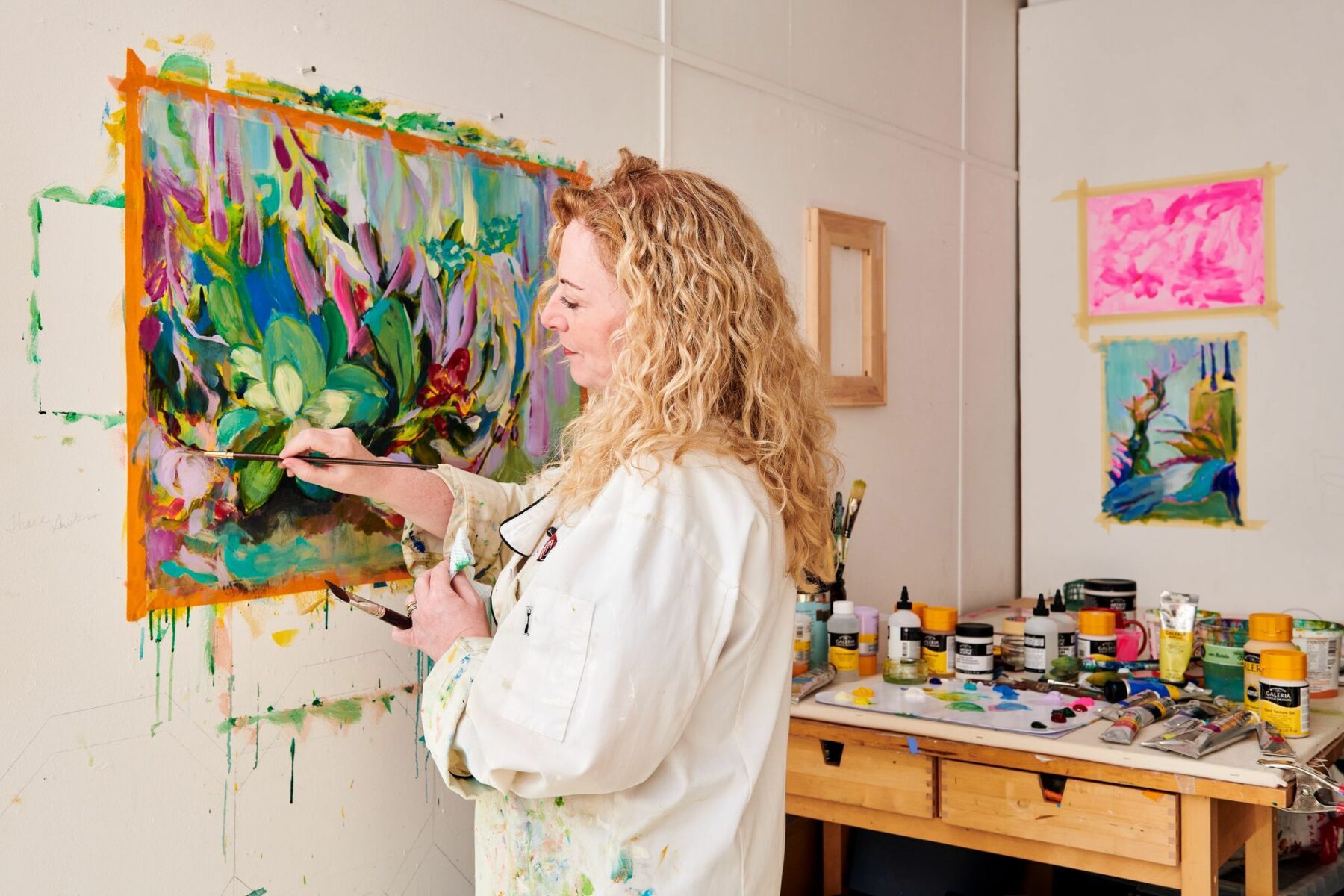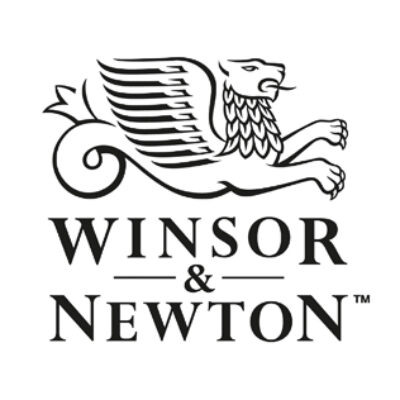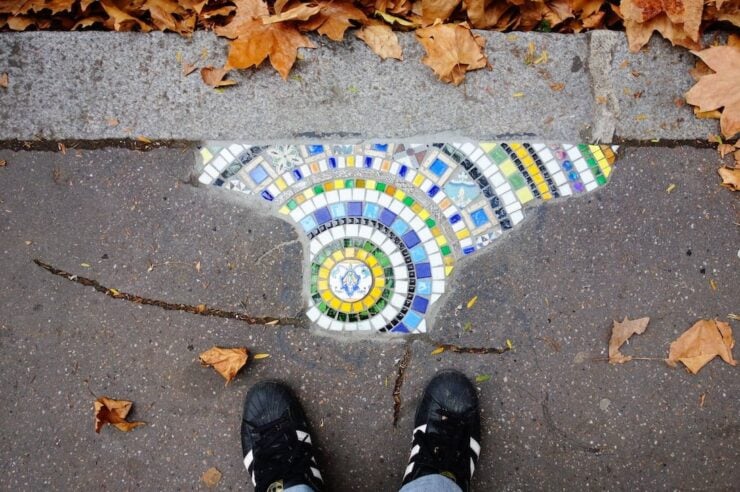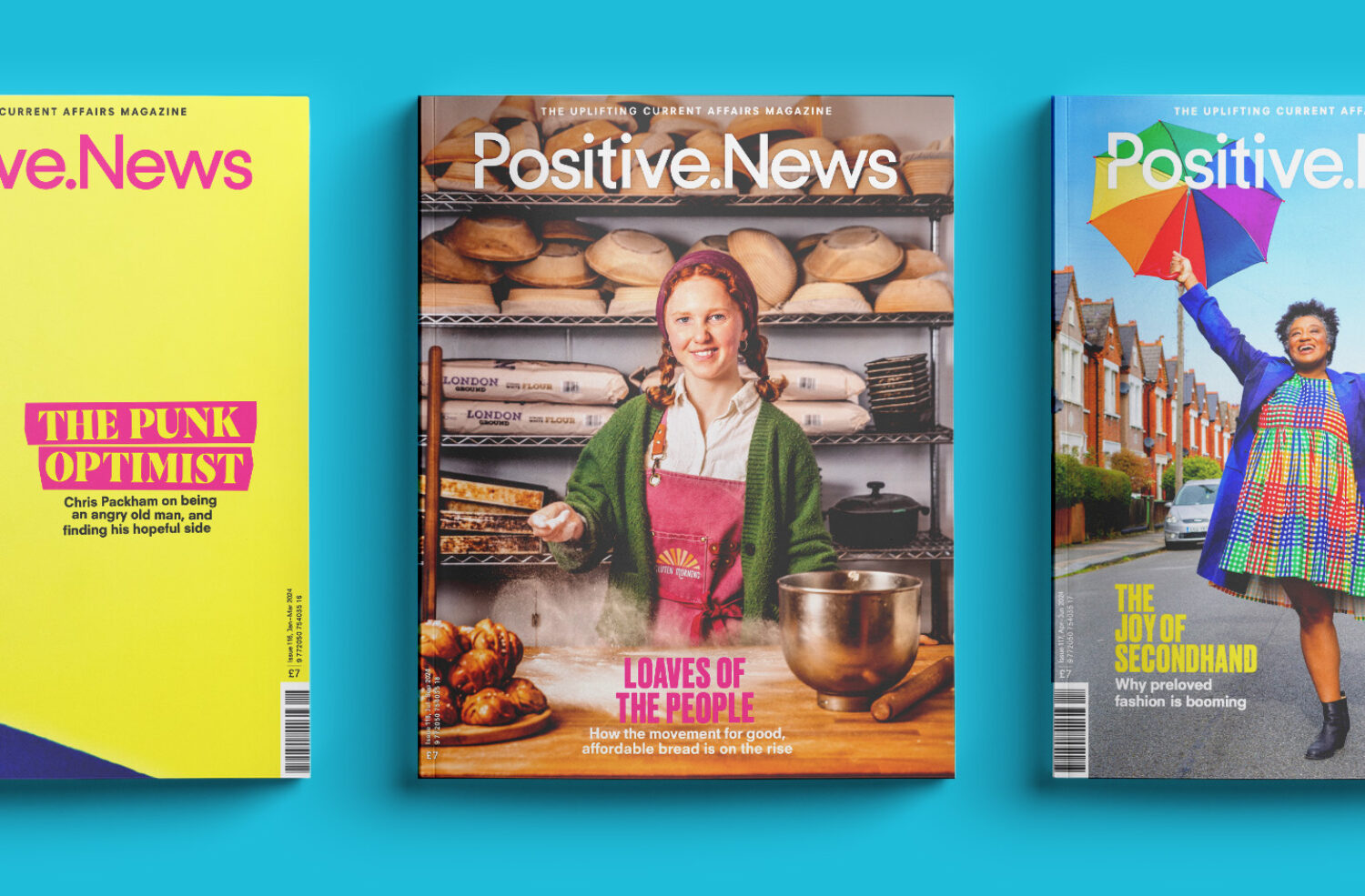Winsor & Newton – the company from which many artists buy their paints, brushes and other tools – has become a B Corp. ‘We think art is really important for society to grow, and sustainability is part of that,’ says the firm
Awareness around the impact of the climate crisis – and the actions urgently needed to reduce emissions – is growing by the day. Brands and companies are getting serious about sustainability, and a surefire way of demonstrating a real commitment to ethical practices is to pursue a B Corp certification. In April, it was announced that there are now 2,000 certified B Corporations in the UK, with the purposeful business movement doubling in size here in just 18 months. Across 95 countries, more than 8,000 have made the B Corp grade to date.
Climate action, circular practices, diversity and fair wages are all key elements of achieving the certification. When your company makes art supplies and paint, which typically contains potentially harmful chemicals, making manufacturing processes sustainable to meet B Corp requirements is particularly challenging. Despite this, Colart, the parent company of heritage paint purveyor Winsor & Newton as well as art supply brands Lefranc Bourgeois, Liquitex, Conté à Paris and Charbonnel, has become the first art company to achieve the certification, thanks to effective changes to their practices that reduce environmental impact.
Being a B Corp fits perfectly with Winsor & Newton and Colart’s wider values, says global brand director Helly Summerly. “Winsor & Newton was founded by an artist and a scientist,” she explains. In 1832, the pair – whose surnames form the brand name – devised brushes, paints and accessories that were revolutionary at the time for being easily portable.
This ethos of innovation underpinned the B Corp certification process, but now, rather than improving artistic practice and the wider industry with compact and versatile products, the priority is reducing the ways art supplies impact the environment. “Colart’s owner has a real mission to leave the industry in a better place,” Summerly says.
B Corp Month – a four-week global campaign to raise awareness of the benefits of being a B Corp –took place this year in March, with a theme of This Way Forward. “I think that theme was a great fit for us, because it’s all about growth,” Summerly notes. “The B Corp certification is a journey, not a destination, and there’s also growth in the creative process. Our customers are everyone from professional artists to amateur hobbyists and students, but the one thing we identified that unites them all is this mindset of wanting to grow through their art. That could be through improving their craft, or from a personal development and mental wellbeing perspective. We think art is really important for society to grow, and sustainability is part of that. That involves sustaining artists and art, too.”
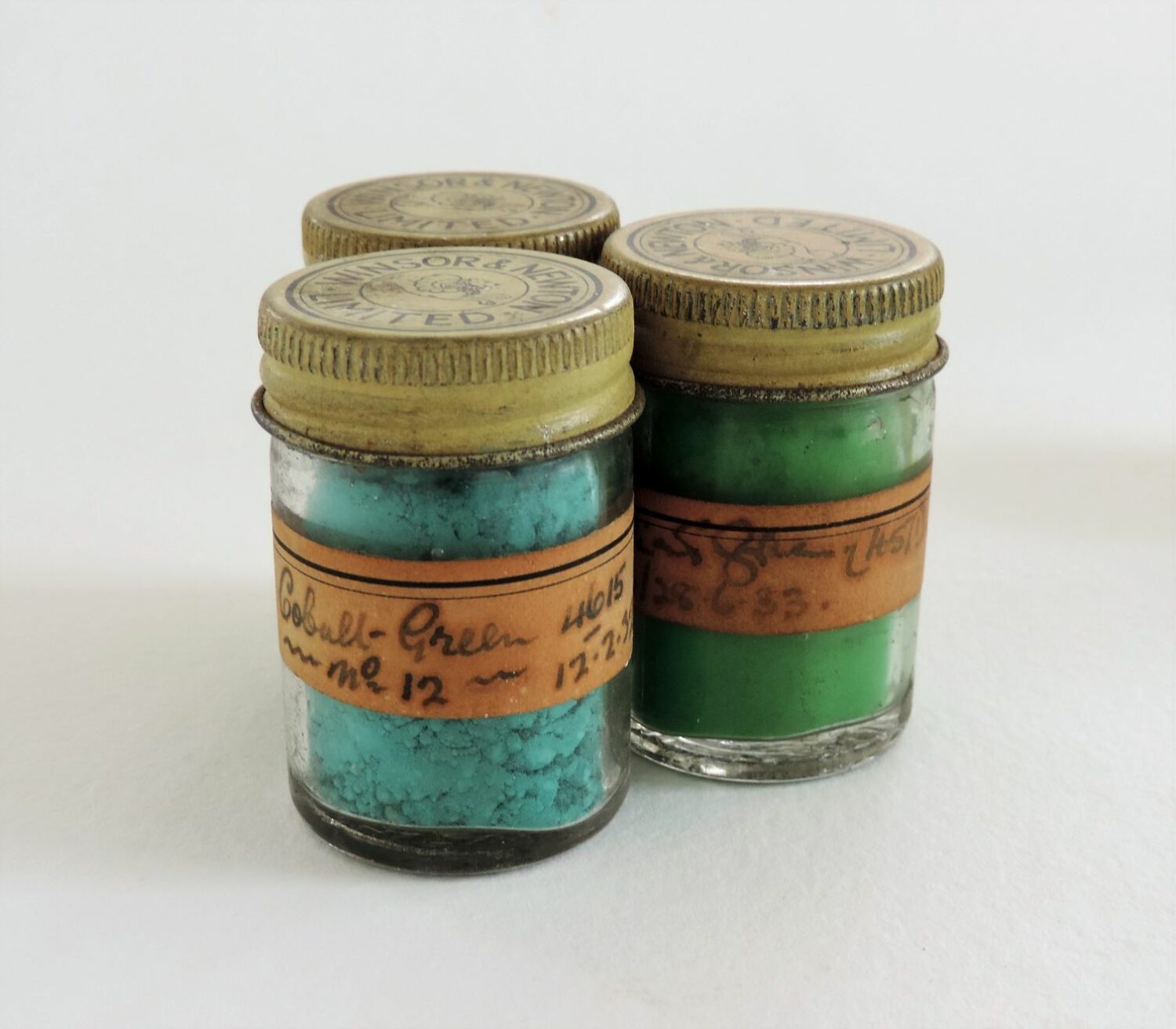
Passing with flying colours: shades of cobalt green and emerald from the Winsor & Newton archive
One way Winsor & Newton helps to sustain artists and art is through donating supplies to charity and nonprofit partners. Currently, it’s partnering with Hospital Rooms, an organisation that enlists professional artists to paint mental health wards. The ethical element needed for B Corp certification may have been easy to tick off, but how did a paint supplier make chemical-heavy colours more sustainable?
Ajita Chamberlin, group sustainability manager at Colart, explains that the company “continues to remove substances of very high concern from our products”, as well as looking for sustainable alternatives where possible. “Many art materials contain substances that can be harmful to human health or the environment, like solvents, heavy metals, or volatile organic compounds,” she says.
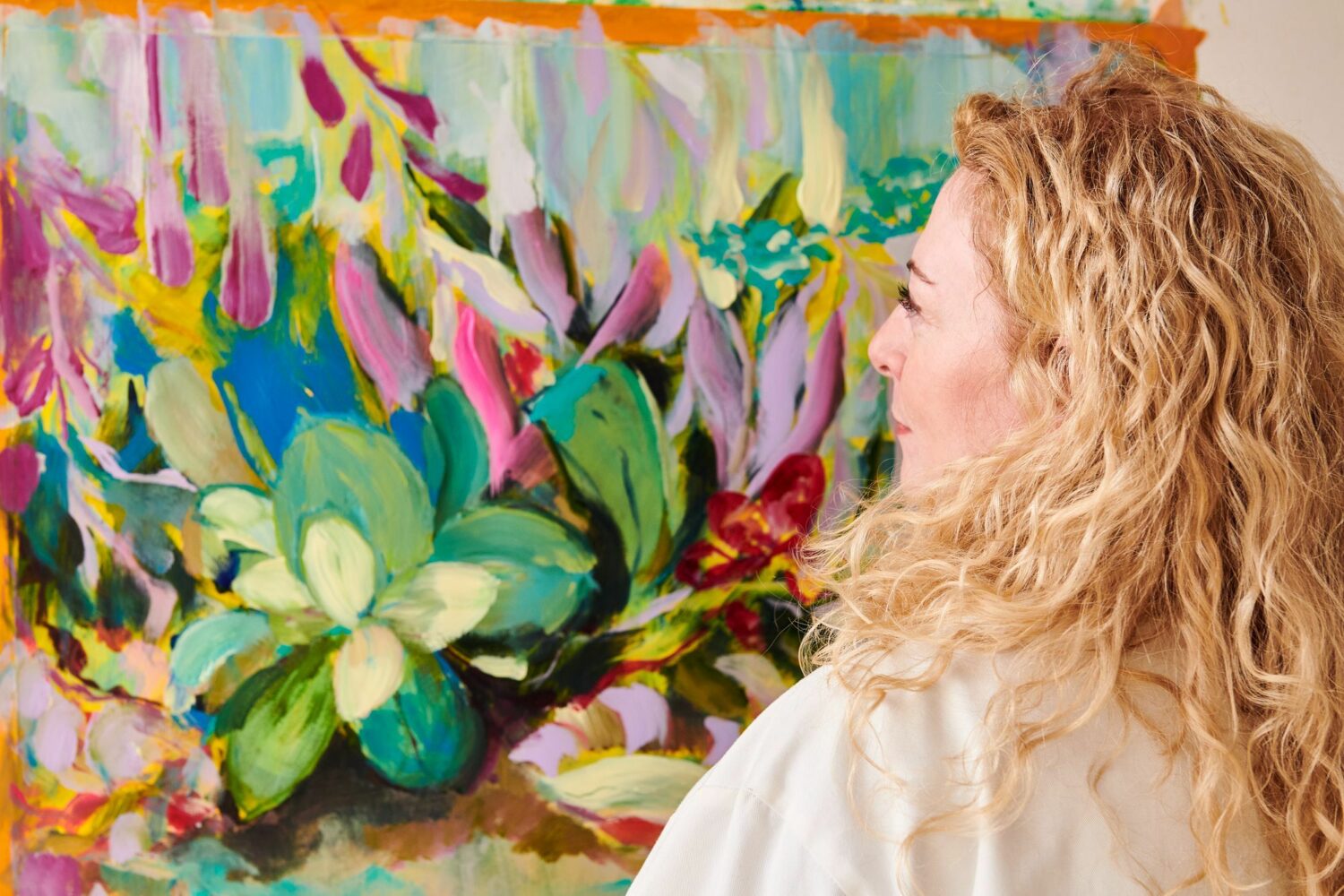
Colart, the parent company of Winsor & Newton, has become the first art company to achieve B Corp certification
These materials are used to make paints more durable and long-lasting, which is, on one hand, a good thing, as it means less frequent replacements are needed, therefore less waste is produced. On the other hand, though, paints and artworks aren’t easily disposed of or recycled because of the chemicals in them.
“It’s a significant challenge for the industry,” Chamberlin adds. “The emphasis on preserving artworks for posterity can sometimes conflict with circularity goals, so it can be hard to balance the preservation of artistic heritage with the principles of circular economy.”
Over a two-year period, Colart’s B Corp application and its practices were scrutinised through three assessments. On many fronts, the company is already well on the way to meeting its own sustainability goals: in its 2022-2023 impact report, Colart declares its intention to reduce Scope 1, 2 and 3 CO2 emissions by 5% year on year, using 2019 as a baseline year from which to measure emissions. In 2022, it said, emission reduction exceeded that goal at 15%. Reducing hazardous waste by 50% by 2025 was another goal on its way to completion, with a 24.5% reduction in 2022, again compared to 2019.
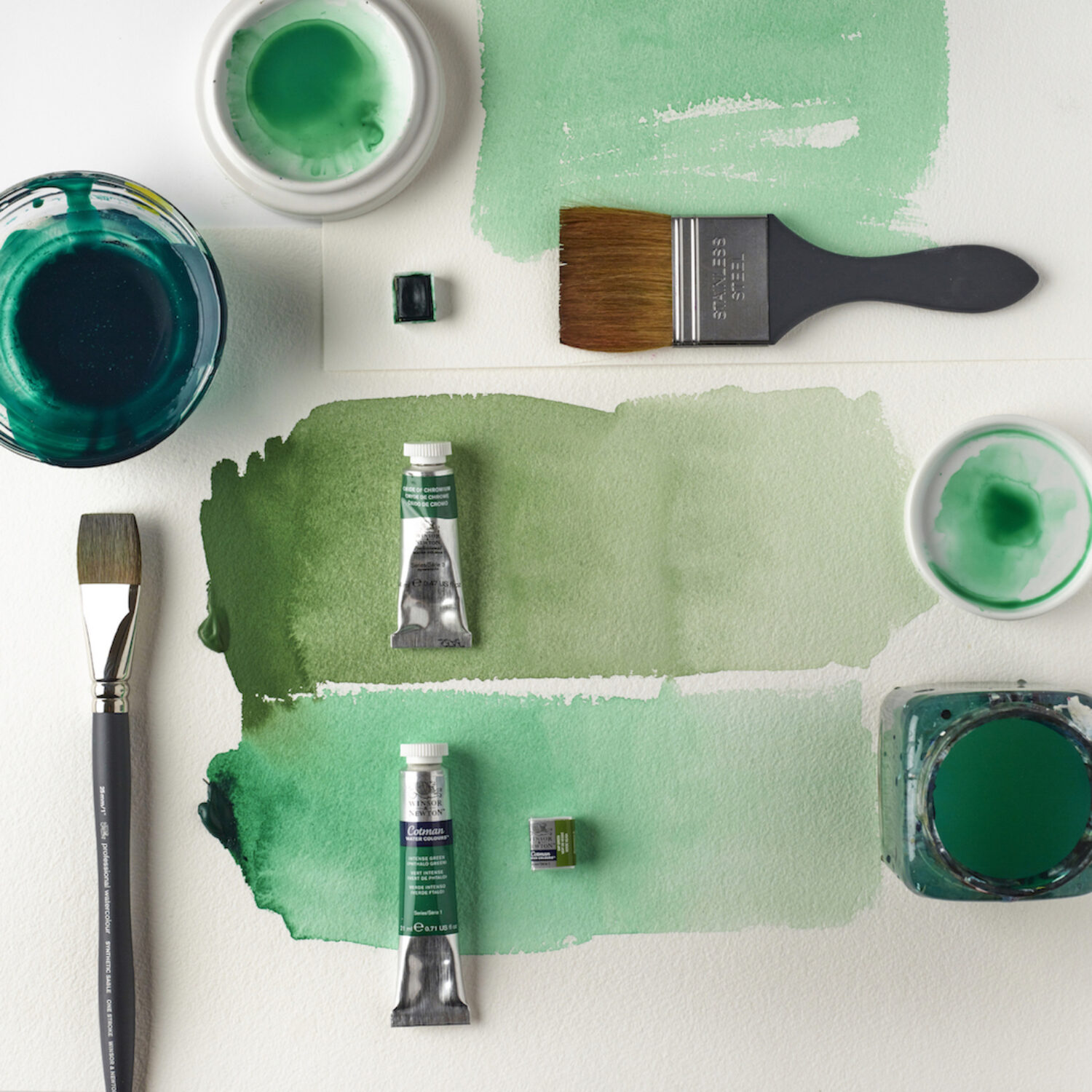
As well as greening the ingredients in its paint, Colart has made improvements in transport, packaging and energy
Becoming more sustainable requires education as well as changes to the way things are done, Chamberlin says. “Promoting circularity in the fine art materials industry requires educating artists, suppliers and consumers about sustainable practices and the environmental impact of their choices. Some companies might not be fully aware of the benefits of B Corp certification or the importance of sustainability practices, especially if they operate in a traditionally less environmentally conscious sector.”
There are now 2,000 certified B Corporations in the UK, with the purposeful business movement doubling in size here in just 18 months
As well as changes to the substances used in paint where possible, Colart has also changed its freight policies to no longer transporting goods by air, increased the use of recycled materials in its packaging, and its UK and French manufacturing sites are powered by green energy. For a company intent on moving forwards, its efforts, and the B Corp recognition, is a significant first step.
Images: Winsor & Newton
Be part of the solution
Positive News is helping more people than ever to get a balanced and uplifting view of the world. While doom and gloom dominates other news outlets, our solutions journalism exists to support your wellbeing and empower you to make a difference towards a better future.
But our reporting has a cost and, as an independent, not-for-profit media organisation, we rely on the financial backing of our readers. If you value what we do and can afford to, please get behind our team with a regular or one-off contribution.
Give once from just £1, or join 1,400+ others who contribute an average of £3 or more per month. You’ll be directly funding the production and sharing of our stories – helping our solutions journalism to benefit many more people.
Join our community today, and together, we’ll change the news for good.
